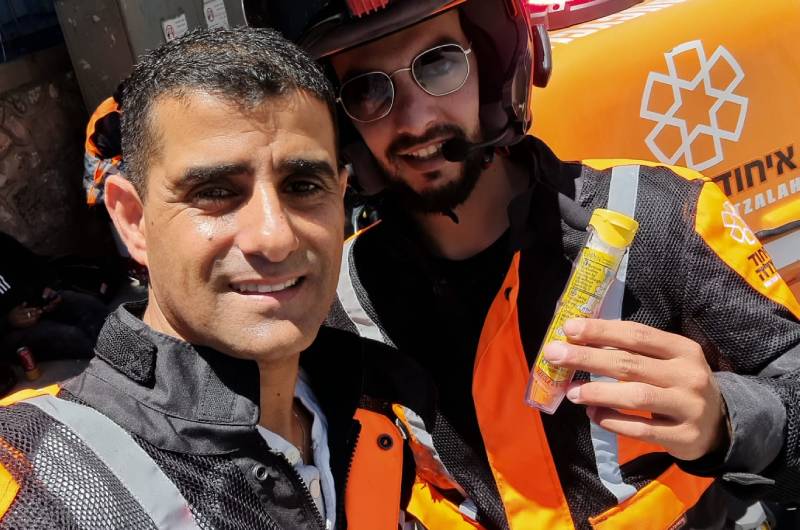Anaphylaxis is a severe, life-threatening reaction to a food, drug, insect venom, or environmental substance. The only drug known to halt and reverse the progression of anaphylaxis is epinephrine, which must be administered quickly.
This Tuesday, a young girl with a known allergy to milk suffered an anaphylactic reaction while attending classes in Tiberia, Israel. The school administration called emergency medical services (EMS) as she slipped into shock.
Yaeir Nahum, a United Hatzalah volunteer EMT, was helping a customer at his store a few blocks away when he received an alert. Apologizing, he explained there was an emergency call and that he would return shortly.
Mr Nahum rushed to the school and was led to the girl who was having difficulty breathing, had a rash over her entire body, and was sweating profusely. Her pulse was beginning to weaken and her limbs were beginning to turn blue, a sign of lack of oxygen.
He asked whether she had known allergies and was told about her milk allergy and that she hadn’t eaten any but was exposed to a cake made with dairy that triggered the reaction.
He administered the epinephrine auto-injector he carries in his medical kit with him. Within a few minutes, the girl’s symptoms began to improve and he escorted, now stable, to a mobile intensive care unit that had arrived ten minutes later.
Less than an hour after, a woman in Tel Aviv in her 30s, also with a known allergy to milk who had inadvertently ingested some dairy in her office, suffered an anaphylactic reaction. As her condition quickly deteriorated, her officemates called EMS.
Aharon Avital, a magician who was riding his ambucycle to pick up supplies for his upcoming magic show, received the dispatch from United Hatzalah alerting him that he was the nearest responder.
Arriving at the building in less than 60 seconds, Mr Avital was led to the woman in distress. He asked if she had her own epinephrine auto-injector with her and when she shook her head “no”, he pulled the auto-injector he carries in his medical kit and administered it.
Said Mr Avital:
The mobile intensive care unit arrived nearly fifteen minutes after I had administered the EpiPen. Had it not been for the EpiPen I gave her, the woman’s situation would have deteriorated drastically. I truly feel I helped save a life today and that makes me smile. I respond to a lot of medical emergencies and an epinephrine autoinjection device is certainly one of the most important lifesaving tools that I carry.
He went on to explain:
There’s a massive shortage of these autoinjection devices around the globe and here in Israel as well. But I believe that it is something that every first responder needs to have with them at all times. For a few minutes, I was worried that now that I used the EpiPen I carry I wouldn’t have one to give to the next patient I treat, but in truth, I shouldn’t have worried. Less than 30 minutes after the incident, my team leader Ron Cohen drove out to meet me and gave me a replacement EpiPen. It is because of him and the organization that I am once again prepared to save lives in any situation.
Two lives were saved because the responding EMTs carried epinephrine and were trained to recognize anaphylaxis and administer the devices.
But understand that not all emergency responders carry epinephrine. Don’t take a chance that the EMT, police officer, or firefighter that responds to your anaphylactic emergency is carrying; take two epinephrine auto-injectors everywhere, every time, and be sure to administer epinephrine as soon as you suspect anaphylaxis.
Why two? Because the first dose may not be sufficient to halt the progression of anaphylaxis and to act as a failsafe in case the first malfunctions or is administered incorrectly.





